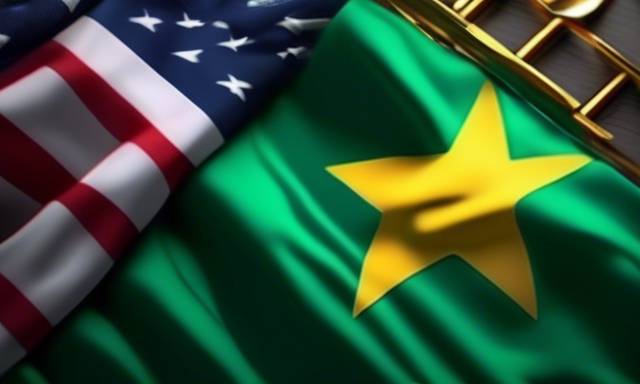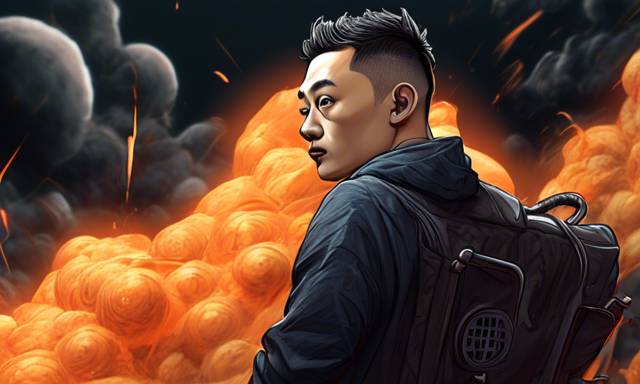Coffee Talk: The Case of Tigran Gambaryan
Imagine this: You’re sitting down for your favorite cup of coffee, and your friend leans in, eyes wide, ready to spill some intriguing news. "Did you hear about the Binance executive who’s been stuck in Nigeria? It’s a real mess!" Now, that’s something that immediately captures your attention. Let me break down this whirlwind of a situation for you, because honestly, it’s one of those scenarios that blends international intrigue with some serious humanitarian concerns.
Who’s Tigran Gambaryan?
So, Tigran Gambaryan is this bigshot at Binance, the world’s largest cryptocurrency exchange—think of him as a crucial player in one of the biggest games of finance right now. He’s been detained in Nigeria since February, and as far as I can tell, it’s not a vacation gone wrong. He’s facing some serious health problems, and it seems like he might be getting the short end of the stick when it comes to medical care. Can you imagine being in another country, dealing with health issues, and not getting the treatment you need? It’s a nightmare scenario.
The Health Dilemma
Reports say that Gambaryan has been suffering from malaria and complications due to a herniated disk. This man is not just in some minor predicament; he’s wrestling with health concerns that could get worse if he doesn’t receive proper medical attention. It’s kind of like when you’re sick but refuse to go to the doctor, thinking it’ll resolve itself. Spoiler alert: it usually doesn’t. The U.S. diplomats are stepping in, showing concern over his health, which makes total sense. They’ve been pushing behind the scenes for his release, urging that his situation warrants a humanitarian response.
Diplomatic Entanglements
Here’s where it gets even juicier. U.S. Secretary of State Antony Blinken brought this matter up directly with Nigeria’s foreign minister a few months back—right at the diplomatic dinner table, sipping coffee or whatever they drink! Diplomats from the U.S. have been continuing to nudge Nigerian officials for Gambaryan’s release. It’s a tough tightrope walk because while Nigeria insists that he’s getting the care he needs, Gambaryan’s family claims he’s not being treated properly.
Bayo Onanuga, a senior adviser to Nigeria’s president, acknowledged the U.S. concerns but insisted they will work within the law. It’s a classic balancing act where everyone is trying to save face while navigating a serious situation. I mean, it’s like trying to eat a slice of pizza with chopsticks—entertaining but messy!
Strains on U.S.-Nigeria Relations
You know that feeling when there’s tension in the air? Well, Gambaryan’s detention is causing a rift in U.S.-Nigeria relations that’s making things very strained. His lawyers are trying to crank up the pressure by asking the State Department to label him as "wrongfully detained." That’s like adding fuel to a fire—the U.S. Congress is even getting in on this, with discussions claiming that Nigeria is essentially holding Gambaryan as a "hostage." The thought of a business trip turning into a hostage scenario is pretty wild, right?
The Bigger Picture
Here’s the kicker: authorities in Nigeria claim that Binance is destabilizing the local economy by facilitating money transfers out of the country, which is leading to a devaluation of the naira. So, the stakes are high. They’ve charged Gambaryan with money laundering and tax evasion, although the tax evasion charges were dropped, which sounds like the legal system is doing its own little cha-cha dance here.
What’s mind-boggling is that Binance argues Gambaryan shouldn’t be held accountable for the actions of the company. He’s not at the CEO level; he’s more like a mid-level employee who happened to be caught in this crossfire. It’s like getting pulled over for speeding because your friend in the passenger seat borrowed the car without telling you—the stress isn’t even yours!
Food for Thought
So, as we sip our coffees, it’s clear that this tangled web of politics, health concerns, and corporate responsibilities raises some big questions. How far should governments go to protect their citizens and asserts? Is there ever a clear line when it comes to international business and personal freedom?
As you ponder that, maybe think of yourself in Gambaryan’s shoes. What would you want people to do for you? Would you want your government to have your back in a foreign land? As we wrap up, it leaves us reflecting on the complexities of global relations and the human stories intertwined within them.
I guess the bottom line is: when it comes to balancing international diplomacy, health concerns, and the economy, it’s a messy business—just like trying to juggle coffee cups and donuts on a Monday morning!





 By
By
 By
By

 By
By
 By
By
 By
By